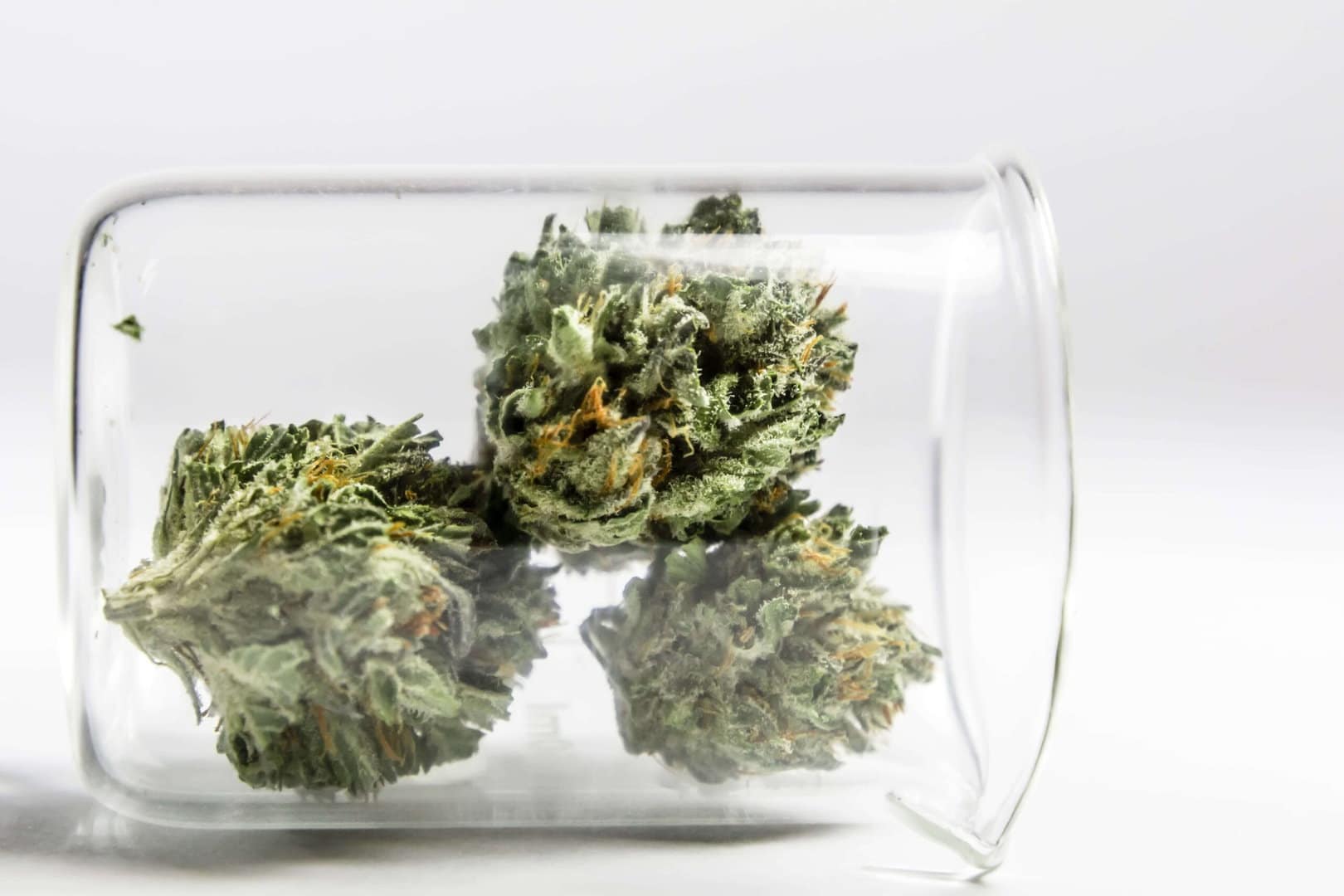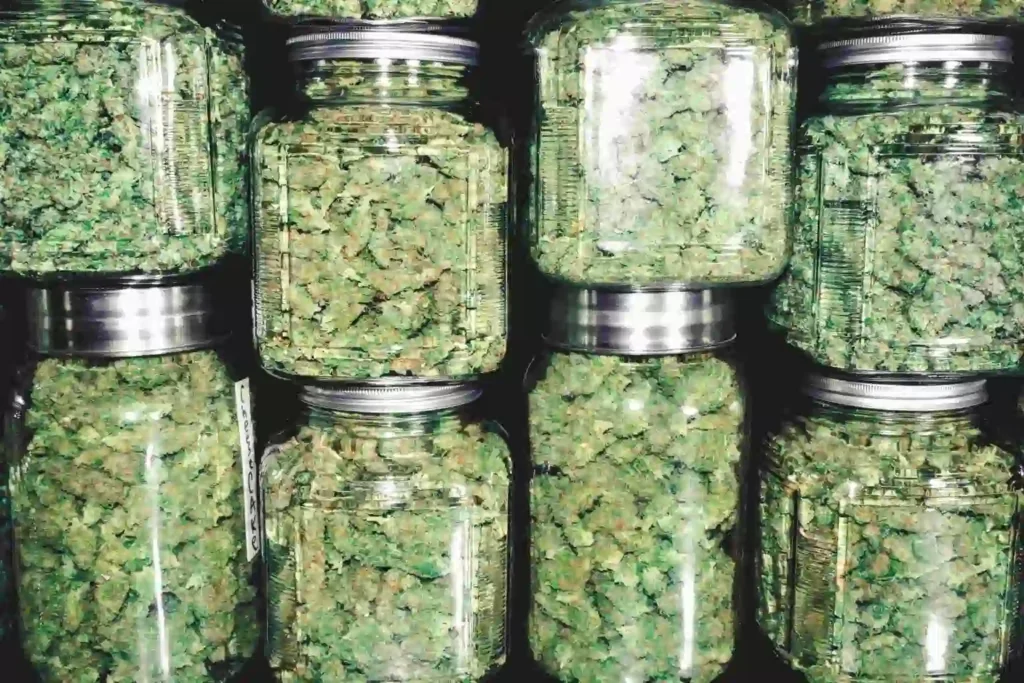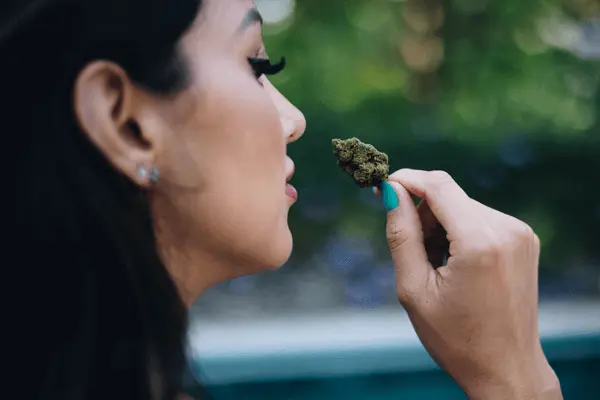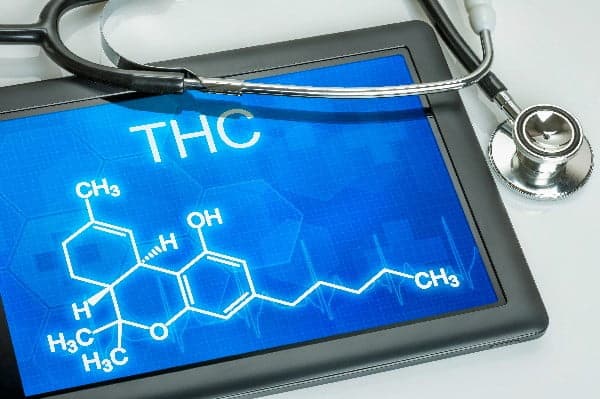
The effects of medical cannabis depend largely on cannabinoids THC (tetrahydrocannabinol) and CBD (cannabidiol). (1) In this article, you will learn what the two most famous cannabinoids are, what medical benefits they can provide and to what extent they are regulated.
THC is a chemical compound found primarily in the flowers of the female cannabis plant. It is the primary psychoactive component responsible for the high or intoxicating effect of cannabis consumption. THC interacts with the human body's endocannabinoid system to produce a variety of physiological and psychological effects. (2) Attributed effects include relaxation, euphoria (3), altered sensory perception (4), increased appetite and reduced pain (5).
CBD is a cannabinoid that is also found in cannabis plants. Unlike THC, scientific interest in CBD did not emerge until after the turn of the millennium. CBD itself has no psychoactive effects, but is associated with calming, pain-relieving and anti-inflammatory effects. (6) This makes it relevant for therapeutic use. Because the focus of medical cannabis legislation is on THC, the exact status of many CBD products is unclear. (7) The THC and CBD content is usually specified for medical cannabis products.
[table id=THCvsCBD /]
THC is a psychoactive substance that, depending on the dosage and exact effect profile of the flower variety, can induce euphoria, an increased need to talk, altered perception, increased creativity and concentration. Depending on individual tolerance, these effects are perceived as an intoxicating experience. However, in conjunction with CBD, there is a greater physical effect, which indirectly leads to greater relaxation, drowsiness and less pain. (6) Intoxication does not occur.
CBD and THC are thought to interact with each other. Accordingly, an increased proportion of CBD in a given cannabis product may modulate the effect of the THC contained, for example, reducing psychoactivity and reducing the experience of intoxication in favour of therapeutic benefits. The interaction between THC and CBD is the subject of ongoing research to tailor cannabis therapies to the needs of patients (8).

There is no general answer as to whether THC or CBD is more important for medical use. However, the emphasis is on the synergistic effects of the two substances and also on their interaction with terpenes and other components of cannabis, which vary in weight depending on the cultivation. The term entourage effect is often used in this context to describe the individual effect of a cannabis strain due to the specific combination of substances it contains. (9) Regardless, cannabis preparations with different proportions of THC and CBD fulfil different roles in cannabis therapy - tailored to the individual clinical picture of the patient.
CBD is known for its potential anxiolytic (anxiety-relieving) properties. It is thought to interact with serotonin receptors in the brain, which may help regulate mood and reduce anxiety. Patients report that CBD can create a sense of relaxation and calm without affecting cognitive abilities.(10) Although THC may also reduce anxiety and have a mood-enhancing effect, it has the opposite effect at elevated doses or individual intolerance.(8)

The potentially relaxing effects of CBD may facilitate falling asleep and improve sleep quality.(11) THC, on the other hand, has sedative properties that reduce the time needed to fall asleep, but may have a negative impact on REM sleep. When consumed frequently, it can lead to daytime sleepiness. (12)
THC-rich preparations are used, among other things, for pain relief in multiple sclerosis and some types of neuropathic pain, as well as in cancer patients.(13) CBD, on the other hand, may have an anti-inflammatory effect. This means that it is used in the treatment of rheumatism, Crohn's disease and ulcerative colitis. (14)
THC has an appetite-stimulating effect on many people, which is why it is used to treat eating disorders. In addition, among other things, nausea can occur. produced by chemotherapy, reduce. (4) These effects have not been demonstrated for CBD.
Due to its psychoactive properties, THC has more serious side effects than CBD. At high doses, THC consumption can lead to impaired short-term memory, coordination problems and altered judgement. THC can also cause anxiety, paranoia and increased heart rate in some people. However, medical guidance during cannabis therapy will usually ensure the appropriate dosage to avoid any side effects. Reported side effects of CBD include fatigue, dry mouth, and changes in appetite or weight. However, both THC and CBD are relatively well tolerated (13).

At MYCANNABIS you will find a wide range of medicinal cannabis products with high THC and CBD content. Use our contact form and enter your prescription information to receive our offer. Find out how to get your prescription in our related article. Once you accept our offer, you can choose from several payment options. This includes PayPal, direct debit and payment on account (also for new customers). Then send us the prescription by post. After we check your prescription, we will send you the required product as a DHL package. Standard delivery is free and takes 1-3 days. If you want faster delivery, you can opt for paid express delivery. This means that you will receive the product no later than 12:00 the next day.

